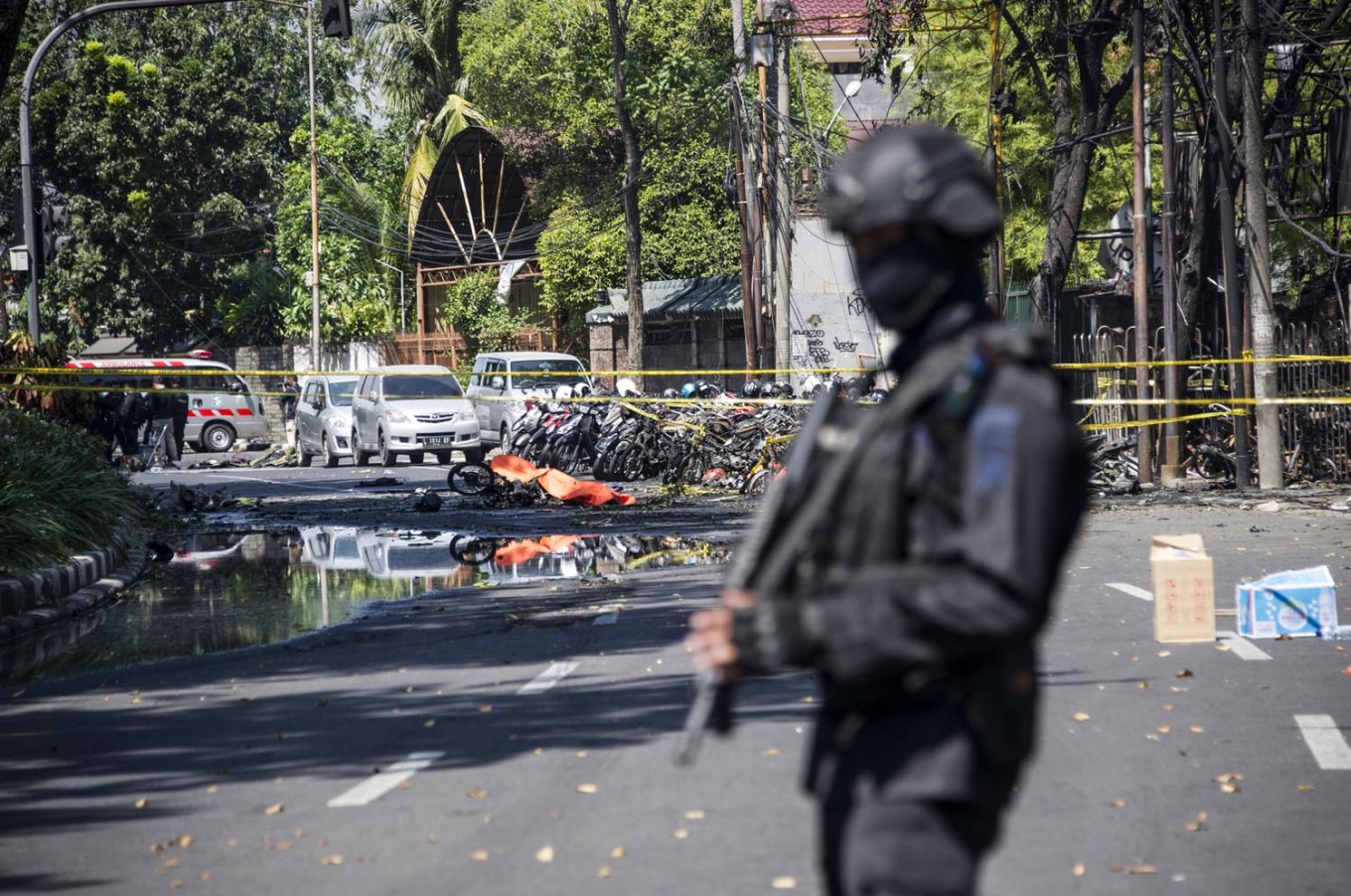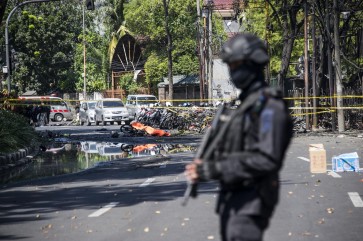Popular Reads
Top Results
Can't find what you're looking for?
View all search resultsPopular Reads
Top Results
Can't find what you're looking for?
View all search resultsTerror victims await compensation as regulation stalls
The government has not revised Government Regulation No. 7/2018, which will further regulate payment mechanisms for terror victims.
Change text size
Gift Premium Articles
to Anyone
W
artini, 50, was six months pregnant with her third child when her husband, Syahromi, a survivor of the 2004 Australian embassy bombing in Jakarta, passed away two years after the blast permanently damaged his cochlea.
She said that Syahromi had been complaining of severe headaches prior to his passing.
During the Sept. 9 attack, which killed 11 people and injured dozens of others, then 35-year-old security staffer Syahromi had been guarding the embassy's lobby.
At around 10.30 a.m., a 1-ton car bomb exploded outside the gates of the embassy, sending him flying across the lobby; his head hitting the wall, Wartini said.
"He couldn't work for around a month. After that, he resumed working at the embassy," she told The Jakarta Post recently.
Shortly after the attack, help poured in for Syahromi and Wartini.
The government covered Syahromi's medical bills in the first three months. Politicians paid him a visit as the second round of Indonesia's first ever direct presidential election was just around the corner.


















